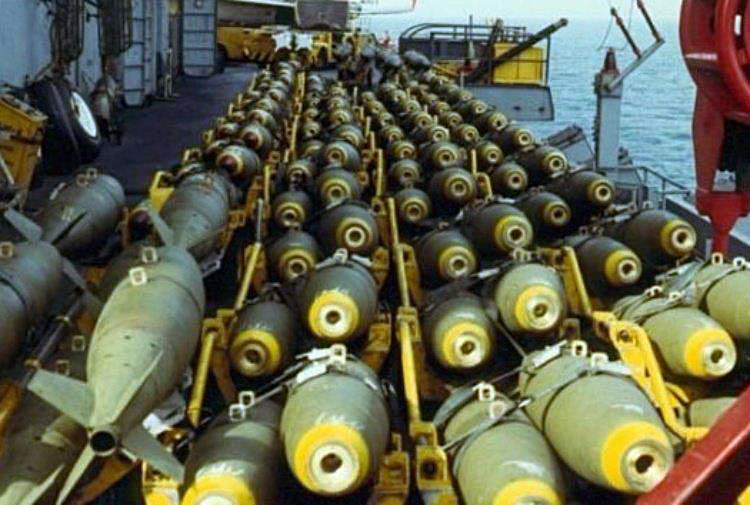Commentary
The Italian weapons industry isn’t economically justifiable
Producing weapons is not useful to anyone, not even from an economic point of view.

We wrote about this one year ago in the pages of il manifesto: while Italy was shutting down due to Covid-19, the armament factories could decide autonomously whether to remain open, thanks to a concession by the government that came to define them as “peak industries.” This was confirmed by the elements brought to the attention of the general public by Presa Diretta on Monday: the “dictatorship of arms” is able to protect military business under any government. And it is certainly not in the plans of Mario Draghi’s executive and the now-confirmed Lorenzo Guerini to change course.
The Minister has been clear in his programmatic lines presented to Parliament: it is necessary to be “fully exploiting the entire potential attainable by the Defense industry, for which it is essential to ensure its development and positioning on the European and international market.” The objective would be “to employ Defense resources to fully develop the entire potential that can be expressed by the Defense industry, through a renewed synergy,” also, and above all, during the current delicate phase, on the premise that “it is fundamental to invest in the full re-launch of the Defense industry, not only as a driving sector of the economy but (…) as a guarantor of sovereignty, freedom, security and prosperity for the future of the country.” Leaving aside the image of the arms business seen as protecting “freedom and security,” it is also important to ask ourselves if the link with “prosperity,” always too easily taken for granted, is actually true. It is too often used as an excuse to justify destructive choices.
Let’s start with turnover. According to a 2018 study conducted by Ambrosetti in collaboration with Leonardo, the Italian Aerospace, Defense and Security sector is worth a total of 13.5 billion euros per year. According to AIAD (the “military” Confindustria), the total number of companies in this sector has a turnover of 15.5 billion. Other estimates arrive at the number 16.2 billion. Therefore, approximating generously (and not all companies in the sector can be considered exclusively military), we can assume a total production of 17 billion as a whole, pre-Covid. If we compare it with the GDP of 2020 (already strongly impacted by the pandemic), it will only just exceed the paltry level of 1%, which in reality is more likely to be 0.9% under normal conditions. Are we really talking about a “fundamental and irreplaceable” industry on which to focus with robust public investments and for the sake of which we should turn a blind eye (or maybe two) from the point of view of ethics and the rules to be respected?
The same can be said for exports, which have always been touted as an element of value on the part of the military industry, but which are not so significant when the data is actually examined. In fact, not all the exports of companies with Italian capital are really “Italian”: the largest ones in particular have a predominant part of their production outside their national borders (for example, Leonardo says that only 16% of its revenues are based in Italy).
Limiting ourselves to military exports alone, we have a figure given by the approximately 3 billion in sales certified by the Report to Parliament on Law 185/90, which we can round up to 3.5 billion by assuming that not all arms sales go through that route (as well as possible time delay effects, since Leonardo has said that it alone exported 2.9 billion of military products in 2019). Even in this case, we are talking about negligible figures compared to the total of about 480 billion euros of “made in Italy” products coming out of the Peninsula: just over 0.7%.
Finally, there is the data on employment, the main form of “blackmail”—especially in some areas of the country—employed to force politics to go along with the arms economy. The various estimates (always from industry sources) converge more or less on 50,000 direct employees and 200,000-230,000 if we also count an unspecified “related” category (which is, at the very least, not only military). We are talking about an “impressive” 0.21% (or 1% if we also count “related” workers) of the entire Italian workforce at the end of 2020. Certainly not the greatest part of those employed in Italy, which, for example, amount to a few million for small and medium enterprises alone.
So, why continue to insist on finding an “economic justification” for the unconditional support for the weapons industry, when it is evident that, especially in the medium term, military spending is unfruitful from that point of view as well? This is demonstrated by studies conducted in the U.S. (where there is a highly beneficial multiplier in favor of the military, given the monstrous budgets of the Pentagon), for which every million dollars spent on defense creates less than 7 jobs, while the same amount of money invested in clean energy would produce just under 10 jobs, in basic education over 19, in higher education more than 11 and in health care over 14. So, who are investments in arms good for, exactly? Certainly not for the country as a whole.
Francesco Vignarca is an activist with the Italian Peace and Disarmament Network.
Originally published at https://ilmanifesto.it/perche-lindustria-degli-armamenti-non-conviene-al-paese/ on 2021-03-24
